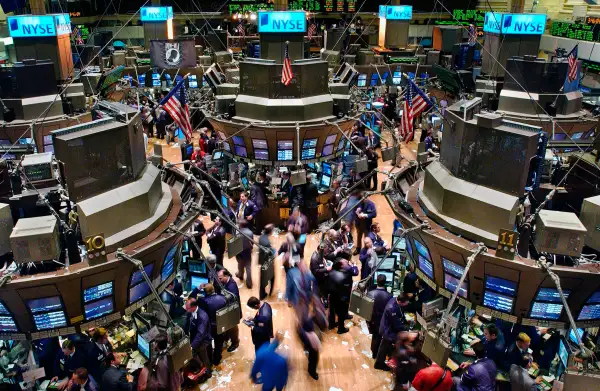Why Staying Power Is the Most Important Tool an Investor Can Have
Money is not a client of any investment adviser featured on this page. The information provided on this page is for educational purposes only and is not intended as investment advice. Money does not offer advisory services.
If you look at the way U.S. stock markets has behaved this year, you’ll see why I don’t put particular stock (you can groan now) in what experts—or so-called experts—have to say about what we should do with our money.
The year started horribly, as those of us who are heavily invested in U.S. stocks remember. Through Feb. 11, stocks were down by double digits for the year, and the consensus was that they were headed lower.
People in the news biz were starting to gin up stories about how the bull market that started in 2009 had run its course. The world was full of expert opinion about why it was time to cash in your profits (or cut your losses) and take your money out of stocks.
There were all sorts of dire predictions about the Federal Reserve raising rates, the economy stagnating, and things just going bad.
So what happened? Stocks, of course, promptly turned around. As I write this, the Dow Industrials, S&P 500 and Wilshire 5000 are all up 12% to 15% from their lows.
The expert consensus now seems to be that stocks are heading higher because the economy is strengthening, the Fed seems to have cut back on plans to raise short-term rates, and all sorts of good things lie ahead. (Corporate earnings aren’t looking great? Bah, that’s nothing to worry about.)
Calculator: What is my risk tolerance?
But I see all sorts of problems looming. The phenomenon of below-zero interest rates in much of the world creeps me out. And the idea that the world’s central bankers are capable of using interest rates and their other tools to make the world’s economies and financial markets run smoothly and productively is absurd.
So am I listening to experts who say that stock markets will keep moving upward? To experts who predict that doom is around the corner? To experts somewhere in-between?
Nope.
I’m doing what I did last year when stocks began falling from what we now see were their all-time highs. I’m gritting my teeth, trying not to get carried away by the news and noise of the day, and waiting to see what happens.
The reason I can do this is that I have the most important thing that a retail investor can have: staying power. I didn’t like watching losses eat away at my portfolio, and I’m fully conscious of the fact that I’m 71 years old, which gives me shorter time horizons than most of you have. But at least so far, I haven’t had to dip heavily into my savings, other than taking required minimum distributions from my retirement accounts.
If you have staying power—because you’ve got years to go before you need to tap your savings, or because you have enough assets to withstand storms—you’ve got the best investing tool there is.
Waiting for stock patterns to change has worked out nicely this year so far for all of us who didn’t panic and sell. When stocks fell by more than 20% in a major panic on Oct. 19, 1987—now known as Black Monday—many experts predicted the decline meant a recession was coming. But it wasn’t.
What the future holds, I don’t know. And nobody else does, either.
But what I do know is that I’m going to rely on diversification, calmness, and staying power to deal with the market’s endless gyrations. I’m sure not going to rely on what supposed experts have to say.

